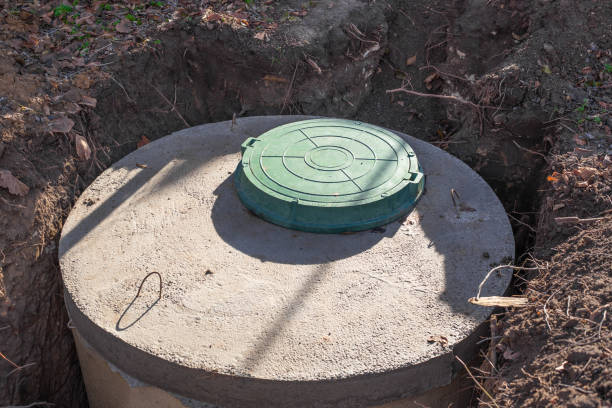Did you know that water conservation is important for the environment and your septic system? If you’re looking for ways to conserve water and protect your septic system, look no further! This blog post will provide you with some tips on how to do just that.
How to Conserve Water & Protect Your Home’s Septic System
Below we discuss 6 ways to conserve water by reducing usage and being more intentional in limiting water waste. These tips will not only help with conservation but also serve to protect your septic tank and system.
Install Low-Flow Fixtures
One of the easiest ways to conserve water is to install low-flow fixtures in your home. Low-flow fixtures use less water than traditional fixtures, which can help save you money on your water bill and reduce strain on your septic system. Most home improvement stores can find low-flow showerheads, faucets, and toilets.
Repair Leaks
Leaks can be one of your home’s biggest sources of water waste. A small leak from a faucet can waste up to three gallons of water daily, while a larger leak can waste hundreds of gallons. Not only does repairing leaks save water, but it can also help prevent damage to your septic system.
If you suspect a leak, there are a few easy ways to check for leaks in your home. First, check your water meter. If the meter runs even when all water fixtures are turned off, you may have a leak. You can also check for leaks by looking for damp spots or puddles around your home or by listening to the sound of running water.
Use Your Dishwasher & Washing Machine Wisely
It’s important to be mindful of how you use your dishwasher and washing machine. Both appliances use a lot of water. If you have a dishwasher, only run it when it is full. The same goes for your washing machine: Do one day’s laundry daily instead of all loads. This reduces the amount of water going into the system at one time. Adjust the water level to match the amount of the clothes being washed.
Use Less Sink Water
It’s important to be mindful of how you use water in your home especially if you have a septic system. One way to conserve water is by using less sink water. It really does ease up on the amount of water that goes into the septic tank. When washing dishes by hand, fill up the sink with soapy water, turn the faucet off while scrubbing dishes, and turn on the water to rinse everything off. Also, when brushing your teeth, turn the water off while brushing and then turn it on to rinse.
Take Shorter Showers
There’s no average time for how long you should spend taking a shower but in terms of water conservation, the shorter, the better. Hot, long showers, though nice and relaxing, are not so beneficial for your septic system. So, run a hot bath instead of wasting water standing under the shower if you want to soak in warm water for 30 minutes or more.
Reduce Outdoor Water Usage
Although the water you use outside the house doesn’t end up in the septic tank, it is important not to over-saturate the absorption area so it can properly drain and treat your home’s wastewater. To reduce outdoor water use, take the following steps:
- Only irrigate the lawn when it no longer springs back after you step on it.
- Use a pistol-type sprayer nozzle on your garden hose to adjust the flow and shut off the water between tasks.
- Use native plants in the area that requires less water.
- Sweep grass clippings from the driveway and sidewalk after mowing instead of hosing them off.
Conclusion
Water conservation is important for many reasons, including protecting your septic system. Following the tips above can help reduce your water usage and keep your septic system healthy.
If you need help installing or maintaining your septic system, contact Vireel Septic And Excavations. We offer various services to help you keep your septic system in top condition.
From septic tank pumping to excavation services and septic installation in Nanaimo and across Central Vancouver Island, you can always rest assured you’re getting quality work from Vireel Septic and Excavations.
Call us today 250-323-1010 to learn more.


